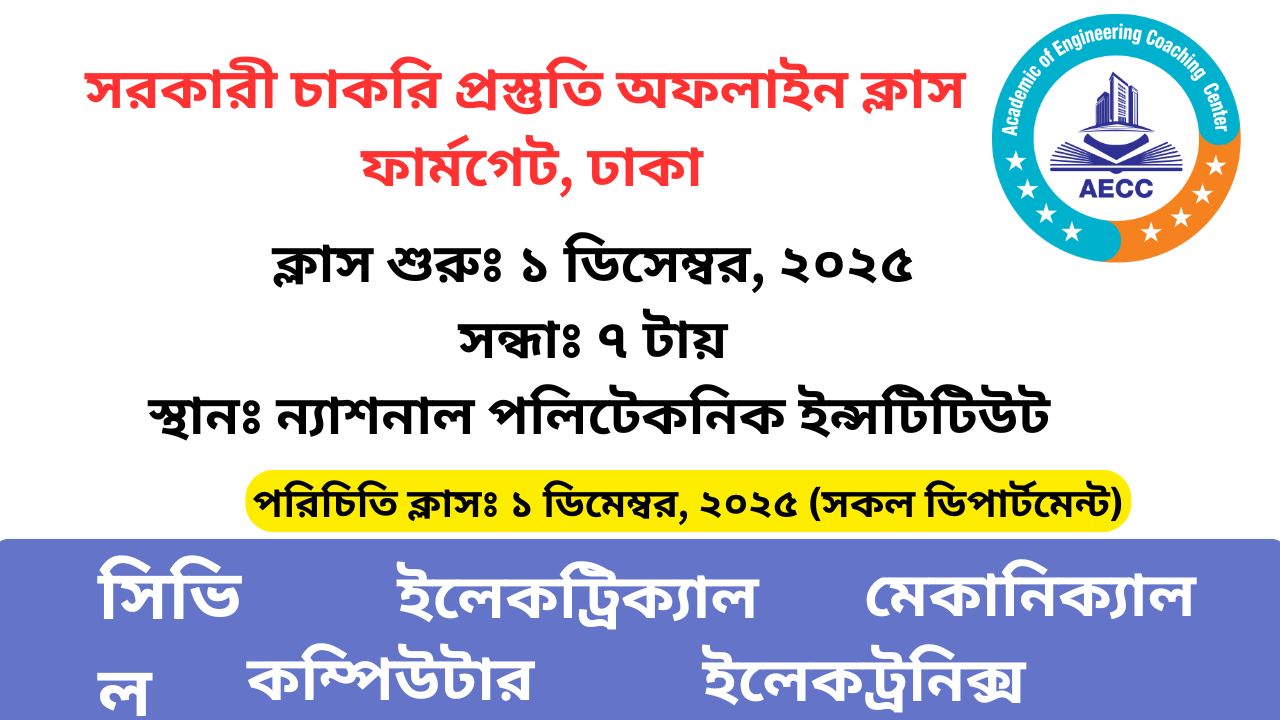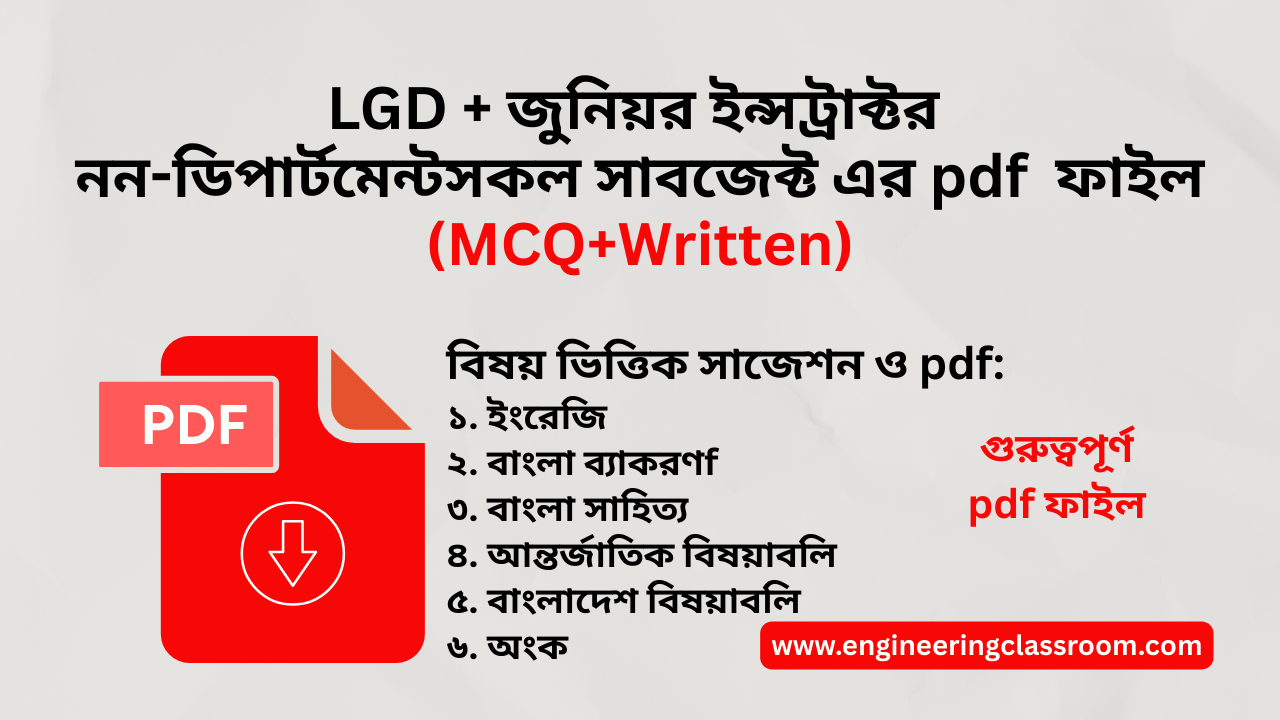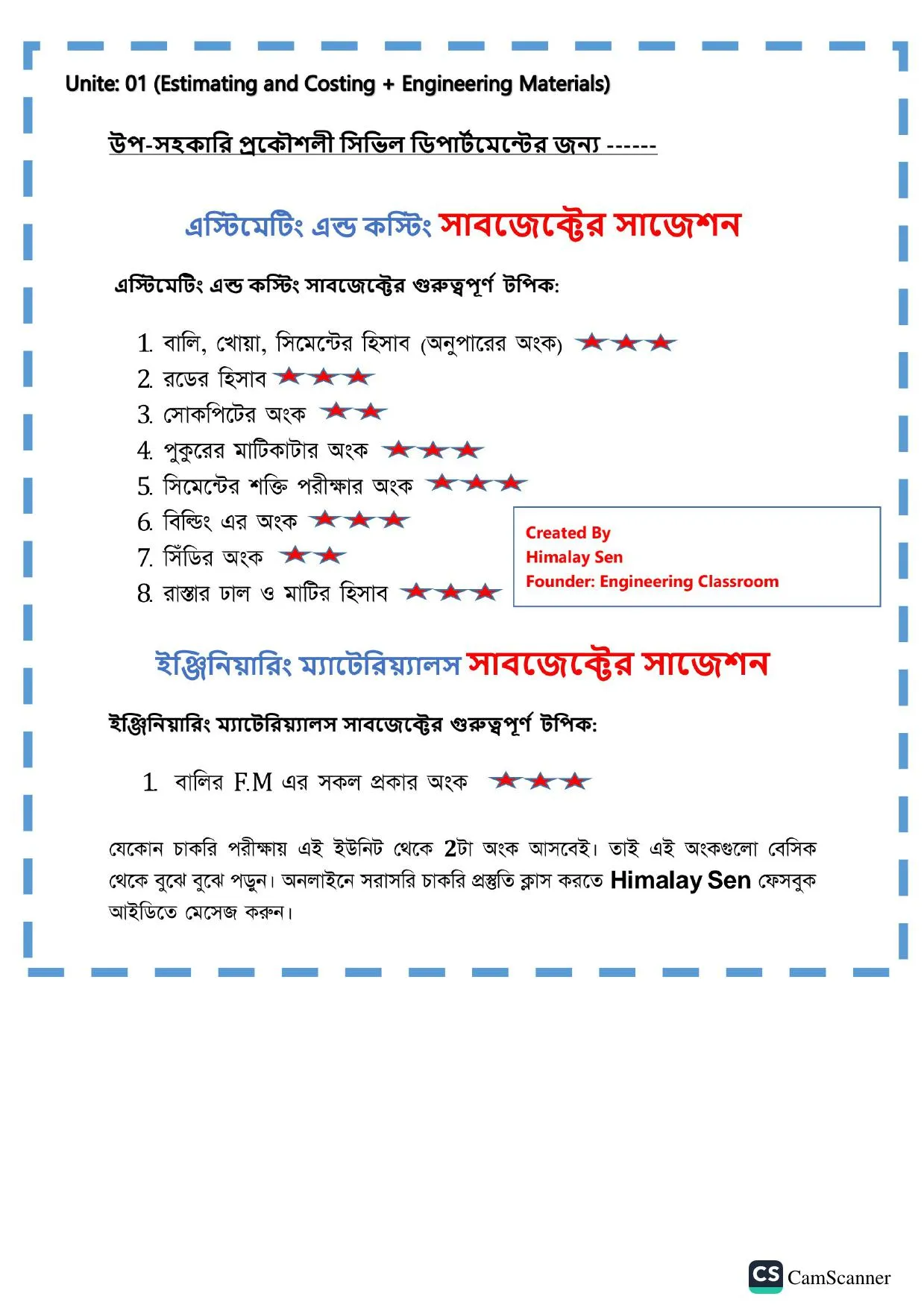থার্মোডায়নামিক্স অ্যান্ড হিট ইঞ্জিনস MCQ
41. According to kinetic theory of gases, the absolute zero temperature is attained when-
Volume of the gas is zero
Pressure of the gas is zero
Kinetic energy of the molecules is zero
Specific heat of gas is zero
42. The term "Efficiency" in a thermodynamic Cycle is a consequence of-
First law of thermodynamics
Second law of thermodynamics
Third law of thermodynamics
Zeroth law of thermodynamics
43. The gas constant (R) is equal to the of…. Two specific heats.
Product
Sum
Difference
Ratio
Himalay Sen Sir
মেকানিক্যাল ইঞ্জিনিয়ারিং MCQ
থার্মোডায়নামিক্স mcq
mechanical mcq
মেকানিক্যাল বিগত সালের প্রশ্ন সমাধান
ব্যাখ্যা: From first law of thermodynanties
Dq = du+dw
Mcpdt = mcdt+pdv ....................(1)
From ideal gas equation
PV = MRT
Pdv = mrdt
Dv = mrdt/P (2)
Now, substitute equation (2) in equation (1)
Mcpdt = mcvdt+mpr/P..................(2)
Cp=Cv+R
Cp – Cv = R
44. Intensive property of a system is one whose value-
Depends on the mass of the system, like volume
Does not depend on the mass of the system, like temperature, pressure etc.
Is not dependent on the path followed but on the state
Is dependent on the path followed and not on the state
45. A perpetual motion machine is-
A thermodynamic machine
A non-thermodynamic machine
A hypothetical machine
A hypothetical machine whose operation would violate the laws of thermodynamics
46. Which of the following variables controls the physical properties of a perfect gas?
Pressure
Temperature
Volume
All of the above
47. Which of the following quantities is not the property of the system?
Pressure
Temperature
Specific volume
Heat
48. Kelvin-Planck's law deals with-
Conservation of heat
Conservation of work
Conversion of heat into work
Conversion fo work into heat
49. The first law of thermodynamics is the law of-
Conservation of mass
Conservation of energy
Conservation of momentum
Conservation of heat
50. In an isothermal process-
There is no change in enthalpy
There is no change in internal energy
There is no change in temperature
All of these
51. Temperature of a gas is produced due to-
Its heating value
Kinetic energy of molecules
Repulsion of molecules
Attraction of molecules
52. Zeroth law of thermodynamics-
Deals with conversion of mass and energy
Deals with reversibility and irreversibility of process
States that if two systems are both in equilibrium with a third system, they are in thermal equilibrium with each other
Deals with heat engines
53. Specific heat of air at constant pressure is equal to-
0.17
0.21
0.24
1.0
54. When two bodies are in thermal equilibrium with a third body, they are also in thermal equilibrium with each other. This statement is called-
Zeroth law of thermodynamics
First law of thermodynamics
Second law of thermodynamics
Kelvin Planck's law
55. The ratio of two specific heats of air is equal to-
0.17
0.24
0.1
1.41
56. According to Kelvin-Planck statement, it is impossible to construct a device operating on a cycle which transfers heat from-
Low pressure heat reservoir to high pressure reservoir
Low temperature heat reservoir to high temperature reservoir
High pressure heat reservoir to low pressure reservoir
High temperature heat reservoir to low temperature reservoir
57. Measurement of temperaturę is based on-
Thermodynamic properties
Zeroth law of thermodynamics
First law of thermodynamics
Second law of thermodynamics
58. Extensive property of a system is one whose value-
Depends on the mass of the system like volume
Does not depend on the mass of the system, like temperature, pressure etc.
Is not dependent on the path followed but on the state
Is dependent on the path followed and not on the state
59. Second law of thermodynamics defines-
Heat
Entropy
Internal energy
None of the above
60. Superheated vapour behaves—
Exactly as gas
As steam
As ordinary vapour
Approximately as a gas
















